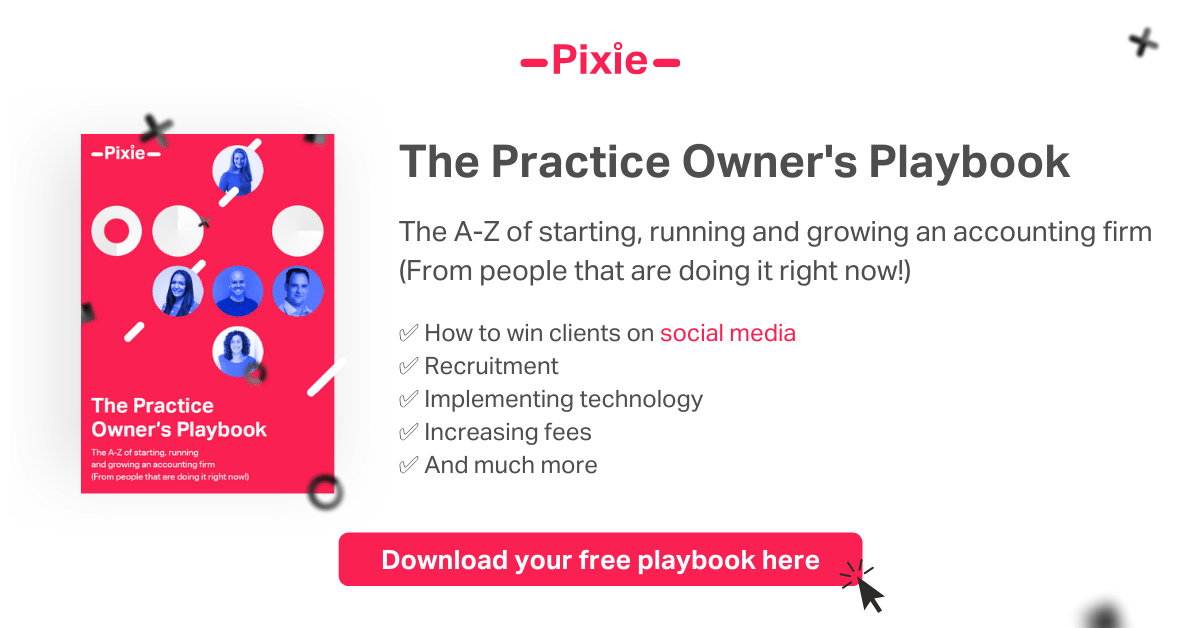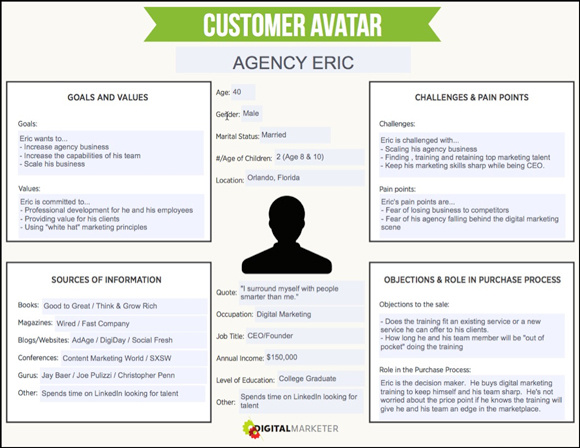Marketing for accountants: An in-depth guide for winning new clients - Pixie
Read our in-depth guide on marketing for accountants and learn how to generate new clients in your accounting firm
According to this article here, accountants ‘suck’ at marketing. The writer goes as far as to say that, because they are ‘highly rational people’, accountants aren’t very good marketers.
Well, we’ve got to step in here and say – hey! Maybe there’s some truth in that, maybe there isn’t. Either way it doesn’t mean that you shouldn’t give it a go.
Although marketing might not come naturally to all accountants, it’s something you can definitely learn and get better at with the right tips.
Cue this blog post.
If you’re one of the accountants who think that marketing might be better left to the pros, we’re here to tell you that:
- You can market your firm successfully
- You can attract more potential ideal clients
- You can take the gold in marketing for accountants
So, keep reading to get some top marketing tips and begin to expand your client base.

What is marketing for accountants?
Before we get on to the marketing tips, we’ve just had a thought. If you’re a complete newcomer to marketing, you might want a bit of context when it comes to marketing for accounting firms.
If you’ve landed on this blog, you might have assumed that marketing can help your firm in many ways. And you were right to make that assumption, because marketing for accountants encompasses the journey and all of the steps you take to capture the attention of prospective leads, nurture them over time, and convert them into clients.
When you get it right it can mean:
- That you have a consistent flow of new (ideal) leads for your firm
- You find yourself and your firm catapulted into new realms of exposure
- People are clicking and engaging (yes, engaging!) with your social media content
But be warned, once you start to put in the work turning this tap on, you likely won’t want to turn it off.
Which CPA marketing strategies can take your accounting firm to the next level?
Here’s the information you’ll need – the ultimate, best practices and marketing strategies when it comes to marketing for accounting firms. These best practices can help your marketing efforts. Trust us, we know what works.
At the heart of marketing for accounting firms are five key techniques or strategies that will increase the number of prospective clients you draw in. Continue to find out what they are.
1. Social media marketing techniques
Social media marketing includes using social media platforms (such as a LinkedIn profile, a Facebook account, or a YouTube channel) to – you guessed it – market your accounting firm and widen the reach of your brand.
They are an essential way to stay connected with current and potential clients.

The key to using social media to market your accounting firm is in the type of content you make. This might include videos and content that offer business advice, information and updates about the latest government legislation (use in moderation!), or vital news to your prospective clients about your accounting firm.
For some more in-depth tactics on what’s working right now, you can read how 3 UK accounting firms are using social media to win new clients.
80% of the population in the United States has a social networking profile, which probably means that your ideal clients are on there, somewhere. This is why you’re seriously missing out if you don’t use this marketing technique to your advantage.
Added to that, social media is a great way to start conversations with prospective clients. When you get into a rhythm of posting and sharing content, you'll start to receive messages outlining their queries and problems and from here you'll be able to generate leads and start to move them through your sales process, starting out with a discovery call.
To speed up the content creation process, consider utilizing AI tools like ChatGPT. These tools can generate content drafts quickly, allowing you to maintain a consistent presence on social media. However, having a human review and editing the content before publishing is crucial. This ensures that the information is accurate, aligns with your firm’s values, and resonates with your audience, thereby maintaining the integrity and reputation of your accounting firm.
If you're stuck wondering, "What should I post about?" Check out these 10 places to look for content ideas for your firm.
Related: Three Reasons Why Your Social Content Fails to Bring Leads
2. Email marketing
Using email marketing is another ideal way to give your prospective clients information and, again, stay connected with them.
But what is email marketing for accountants?
Email marketing approaches include building an email list from existing clients, new clients, and personal contacts. This contact list can galvanize your marketing efforts and ensure that your prospective clients are constantly reminded that you’re there and you can help them.
Lots of business owners will already have an accountant, so often your role in marketing is to position yourself as the number one alternative, just waiting for their current accountant to mess up or for your prospect to realise you can offer more value.
Part of email marketing also involves using something called lead magnets to convince prospective clients to give you their email address in the first place (normally in exchange for a piece of content). That content might include a free financial report, or an ebook with tax saving tips, for example.
Once you’ve gathered your list of emails, your next step is to decide which content to send to your prospective clients, which might include a welcome email or some top business & accounting tips to catch their eye. The key to knowing what content to send is to really understand the pains and problems of your ideal client profile.

Then, you might also consider using an outbound Call To Action (CTA) at the end of your emails to encourage prospective clients to take the next step towards working with you. You can continue to do this over time, nurturing your leads ready for the time they want to jump ship and switch accountants.
Going to all this trouble is worth it. Over 85% of the US population actively use email (approximately 246 million people), which is exactly why email marketing for accounting firms is a highly powerful strategy.
3. Launch and optimize an accounting blog on your website
As with your social media channels, the more good-quality content your website features, the more exposure you will achieve for your accounting firm. This means you’ll want to try and create regular posts when you launch your accounting firm’s blog.
Don’t forget to keep up the consistency! When prospects research your blog and social media profiles, and find them inactive and not updated or months or years, it doesn’t send them a great signal.

One best practice to consider when you write your content is to use SEO, or search engine optimization, to take your exposure to the next level. Our guide on SEO for accountants goes into a lot of detail on this, as there are plenty of points you’ll need to get familiar with, but we’ll touch on it briefly here.
An essential way to market your accounting firm’s blogs is to use keywords. You might think of them as a pre-emptive way of anticipating what your clients want. They will ensure that your content matches what your prospective clients are searching for.
For example, the keyword we’re targeting in this blog is ‘marketing for accountants’. You’ll see it in the title and sprinkled throughout. We’re doing this in the hope that if you google this term, our blog will come up and we’ll generate some new leads, hopefully!
SEO tools are invaluable for creating blog content that enhances online visibility by optimizing keywords and structure. However, it’s crucial to balance data-driven insights with a human touch to maintain authenticity and reader engagement. Remember, while SEO tools lay the groundwork, human involvement ensures content quality and builds trust with your audience.
4. Use the perfect website design for your accounting firm
The quest for the perfect website design will require thinking about the UX, or user experience. Yes, we know this might sound like tech jargon! But UX refers to the way your specific website design enhances your prospective clients’ interactions on your website.
Now, if you’re unsure about the ideal way to reach prospective clients with your website’s homepage, just think of it as a map that makes navigating your accounting website a breeze. It should be simple to find your services and top tips, and your clients should be able to access what they are looking for with ease.

If you’re not a whizz at web design, working alongside a branding expert or a tech expert (like a front-end developer) is a good idea. They’ll ensure your new accounting brand matches your design, which is important when it comes to marketing for accounting firms.
Watch this video to learn about 7 ways you can differentiate your accounting brand.
5. Keeping track of analytics
Here’s the deal with marketing. Doing the work is only one half of it. The second half is about reviewing the analytics & data to figure out what worked and what you can double down on going forwards.
To keep track of analytics and data, you might require tools like Google Analytics. It’s vital for CPA marketing, as well as monitoring prospective clients’ actions.
Analytics gives you a way to understand exactly what is popular with your clients and discover the exact actions your clients are taking on your website.
Your work’s not done here, though. You’ll need to regularly track your analytics and find ways to tweak your marketing strategies and improve on the status quo.
Top 5 things to avoid when using marketing strategies for accounting firms
To make the path towards CPA marketing success easier, we’ve included this list of things you should avoid when trying to market your accounting firm. Because, although you’re now aware of the key marketing strategies for accountants, you should also know what not to do.
So, first on the list is…
1. Forgetting to create or stick to a marketing plan & strategy
“Strategy without tactics is the slowest route to victory. Tactics without strategy is the noise before defeat” - Sun Tzu
We know, it’s a pretty obvious one. But a CPA marketing plan is vital to marketing success, and the more detailed your plan is, the better your outcome will be.
As part of your CPA marketing plan, you’ll want to:
- Carry out what’s known as a situational analysis to find out the current status of your accounting firm. This includes highlighting your firm’s unique selling points and taking stock of what you’re currently doing to market your firm.
- Consider which targets and goals you would like to achieve – and the ideal timeframe in which you’d like to achieve it.
- Think about the budget you have allocated for CPA marketing purposes.
- Choose which CPA marketing strategies you’ll need to achieve your goals.
- Develop content (written blogs or videos) for marketing purposes.
- Keep track of your results with marketing analytics and ensure you measure how effective your strategies have been
2. Failing to complete and optimize your social media profiles
As we’ve mentioned, using social media is a great way to enhance your online presence. These days, social media profiles can often be the new websites. In fact, some newer accounting firms have grown solely from social media, without needing a website at all!
Creating a social media account is important for various reasons – a key one is that the very first thing your prospective clients will do is use LinkedIn and other social media channels to search the name of the accountant they’ve heard good things about – (that’s you).
You’ll want to have a fully-informative profile to ensure all the good things your potential clients have heard are validated.
But, going one step further, optimizing your social media presence is equally important. Some of those SEO tips that you’ve learned about, for example, can also be used for your social media posts and content.
- To optimize your social media profiles:
- Research and use keywords to maximize your contents’ exposure
- Enhance and optimize your profile with relevant images, usernames, and bio descriptions
- Keep coming up with and creating exceptional content that’s optimized
- Post regularly to draw in more prospective clients to your accounting firm, and
- Monitor and track the results with social media analytics
3. Implementing marketing strategies without the right skills or research
Now, at first glance that might seem like a contradiction to our statement about ‘leaving CPA marketing to the pros’, but this doesn’t mean you can’t learn the required marketing skills yourself and take things into your own hands.
As long as you’ve carried out the essential research into marketing for accountants or consulted marketing professionals for some top tips to assist you, you can market your firm with ease.
Brush up on email marketing, get to know some of the vital search engine optimization (SEO) strategies we’ve briefly mentioned here, see what the experts are saying about social media marketing, and do some digging to find out about analytics.
The bottom line is that CPA marketing can be achieved with the right approaches, so if you don’t initially have the right skills, start finding out ways to implement CPA firm marketing strategies.
4. Forgetting the importance of the funnel
Lying at the heart of marketing for accountants is the marketing funnel.
Understanding it can help you to create a clear path for your prospective clients to follow, turning them into leads and eventually converting them into clients.
So what is a marketing funnel?
The funnel acts as a metaphor for your prospective clients’ journeys from becoming aware of your firm to making a purchase. Your clients move through the ‘funnel’ and pass through various stages.
The key stages of the CPA marketing funnel include:
- Your potential clients become aware of your accounting firm
- Prospective clients develop an interest in your firm & what you can do to help them
- Your potential clients evaluate your services to see if they can help
- They commit to your services
- They make a purchase
Using the marketing funnel metaphor helps you analyze which potential clients are close to making a purchase or using your services. It’s an ideal way to identify and focus on the weaker areas in your CPA marketing strategies.
5. Not updating and optimising your website in line with your new brand
This last one’s quite important – there’s nothing worse than establishing a new brand and working on your accounting firm’s tone of voice until it’s perfect, only to leave your website behind in the dark ages.
Matching your accounting firm’s website design to your brand will require a few best practices, such as:
- Using a clear, simple user interface
- Making sure the language and style of the website matches the personality of your firm and the ideal clients you’re trying to attract
- Ensuring your CPA firm is accessible on a range of platforms (mobile, desktop, and tablets), and
- Making sure the design takes SEO approaches into consideration
- Having clear call to actions for your prospects to take the next step
And just to focus on that last point, SEO-friendly websites and designs will enhance your CPA marketing. A combination of fast load speeds (which we’ve covered in our SEO for accountants guide), and descriptive, SEO-friendly optimized URLs (or web addresses that use keywords and tell your prospective clients what they’ll find on your firm’s webpage), are both a part of this.
Use these top CPA marketing strategies and start attracting prospective clients

Although some might think marketing for accountants is a challenge, with the tips we’ve provided in this post, you’ve got the inside track! Remember to:
- Post regularly when you launch your accounting firm’s blog
- Implement SEO approaches to optimize your content
- Use social media to stay connected with your potential clients
- Carry out analytics to track your efforts, and
- Start collecting email contacts to leverage your email marketing approaches
It’s time to go for the gold medal in CPA marketing. You’ve got it in the bag!

About the author
Celso Pinto
A Portuguese expat in London, Celso founded Pixie after learning first-hand about the challenges faced by small accountancy and bookkeeping practices. A product-focused leader with over 20 years experience in the software industry, at Pixie you'll frequently find him listening to customers and distilling their feedback into the product and go-to-market strategy.


